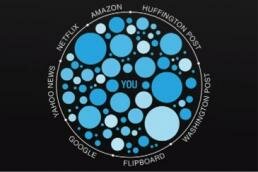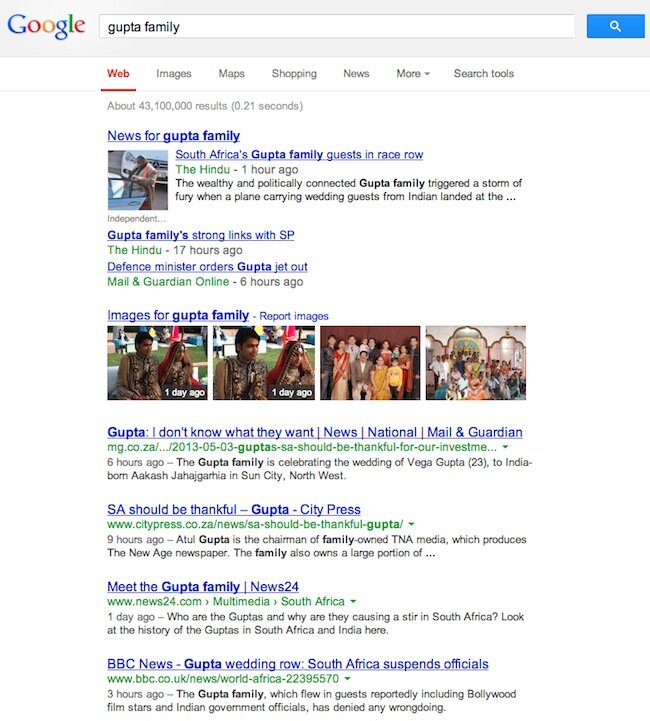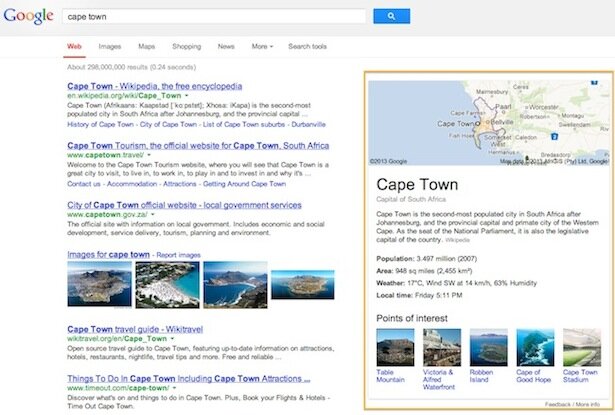SEO and the Filter Bubble
Submitted by Sara Lopes Moutinho on Tue, 2013-05-07 14:14

A significant pillar of search engine optimisation [SEO] has always been relevance. Delving deeper into present-day search algorithms however, has revealed a development that surely challenges the SEO principles we’re all accustomed to.
Consider this: invisible search engine filters ensure that you and I receive tailored, and therefore, very different SERPs when we individually do a Google search on the topic of, for example, the (see the screenshot below for my results; share yours with me).

This concept of personalised search is not exclusive to search engines. Twitter offers you suggestions on who to follow, as well as tailored Facebook too, filters what you see on your news feed, depending on what sort of links you generally click on, as well as posts that you like and share.
You may have noticed (an example is pictured below) on SERPs. It’s an ingenious tool that does most of the filtering for users. It constitutes a hub of 570 million objects and 18 billion facts; interestingly, relying on Wikipedia for much of this data. What’s especially fascinating is that this information base is able to distinguish between different meanings of the same search keyword.

These next generation algorithms and “filter bubbles” certainly influence and determine the way forward for SEO.
Besides the universally accepted white hat principles of relevant keywords, meta descriptions, links and markup, search engine optimisation needs to evolve and consider, amongst other things, the following factors:
• Unique and rich content
• Widely published content marketing and WebPR
• Social metrics e.g. shares, mentions, favourites and retweets
• Social presence including one’s location, interests and friends (especially on Google Plus)
• Mobile responsiveness and usability
• Localisation i.e. Google Maps and Google Places
In the video below, Eli Pariser, author of The Filter Bubble, talks us through the ever-evolving algorithms we find on the web.
>
What SEO approach do you believe we all need to adopt, in order for content to reach its intended market? Does this hidden filtering hinder or help SEO?


















